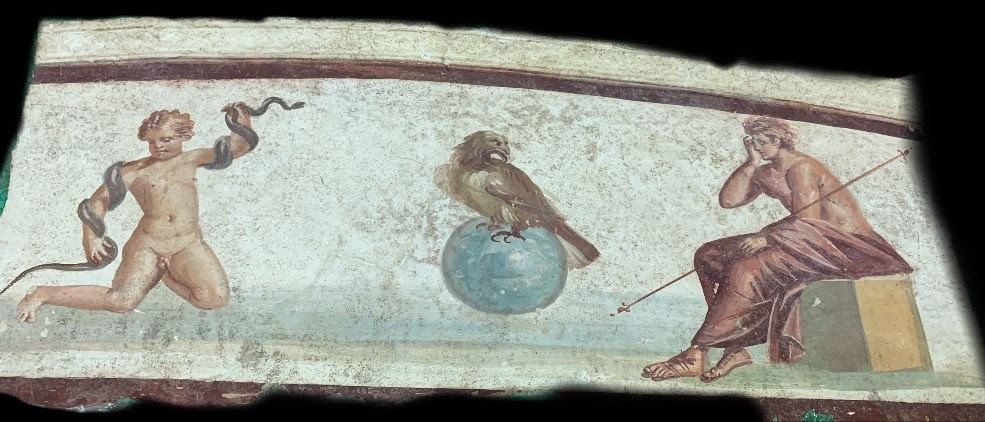
New York officials have returned a cache of stolen antiquities to Italy, where they’re expected to go on display at the newly opened Museum of Rescued Art in Rome.
In a repatriation ceremony held yesterday, July 20, Manhattan district attorney Alvin Bragg, Jr., turned over 142 artifacts, worth an estimated $14 million, to Italy’s consul general, Fabrizio Di Michel, and a representative from the Italian police’s Command for the Protection of Cultural Heritage, Roberto Riccardi.
Of the transferred pieces, 48 were recovered from retired hedge-fund billionaire Michael Steinhardt last year as the result of a lengthy, multi-national investigation. Steinhardt surrendered $70 million worth of stolen objects as part of the probe and agreed to an unprecedented lifetime ban on acquiring cultural antiquities.
Sixty additional relics were recovered from Royal-Athena Galleries, the longtime business of prominent Greco-Roman artifacts dealer Jerome M. Eisenberg, who, incidentally, passed away earlier this month. The remaining 34 items were “seized pursuant to other ongoing investigations,” according to an announcement from the District Attorney’s office.
“Though the pieces being repatriated today have a written price tag of millions of dollars, the historical, artistic, and cultural values attached to each of the relics are immeasurable and priceless,” Bragg said in a statement. “These artifacts deserve a place in their homeland, where the people of Italy can jointly appreciate the marvels of their country’s past.”
Perhaps the most notable artifact headed back to Italy is the Ercolano Fresco, which depicts a young Hercules strangling a snake. The artwork was stolen from the archeological site of Herculaneum, an ancient town buried by volcanic ash spewed during the eruption of Mount Vesuvius in 79 A.D. and is worth an estimated $1 million today.
The fresco was one of the more than 180 antiquities seized from Steinhardt, who purchased it in 1995 for $650,000, despite the piece having no verifiable provenance.
Among the other repatriated objects are three frescos from the 4th century B.C.E that were taken from the ancient city of Paestum; as well as a pithos, or storage jar, that dates back to 700 B.C.E.
“The repatriation of these 142 masterpieces, previously stolen or looted in Italy, is very important for our country,” Di Michele said. He said during the ceremony that some of the objects will go on view at the Museum of Rescued Art, which opened last month within the National Roman Museum in the Baths of Diocletian.